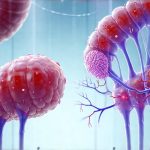The intricate connection between our digestive system and brain is increasingly recognized as pivotal for overall health. For years, these were considered separate entities, but emerging research reveals a complex bidirectional communication network known as the gut-brain axis. This axis encompasses neurological, immunological, endocrine, and microbial interactions that profoundly influence both physical and mental wellbeing. Understanding this interplay is key to appreciating how digestive health impacts everything from mood and cognition to immune function and chronic disease risk.
This fascinating system isn’t simply about digestion; it’s a constant dialogue between the gut microbiome – the trillions of bacteria residing in our intestines – and the brain, influencing each other continuously. Disruptions in this communication can contribute to a wide range of health issues, highlighting the importance of nurturing a healthy gut for optimal wellbeing.
The Gut-Brain Axis: A Two-Way Street
The gut-brain axis isn’t a single pathway but rather a multifaceted system. Signals travel from the gut to the brain and vice versa through several key routes. These include the vagus nerve, which acts as a direct communication line, hormonal signaling, immune pathways, and crucially, metabolites produced by the gut microbiome. This constant exchange shapes our emotional state, cognitive function, and even how we respond to stress.
The complexity of this axis means that factors affecting one end – like diet or stress levels – can have ripple effects throughout the entire system, impacting both digestive health and mental wellbeing. Recognizing this interconnectedness is vital for a holistic approach to health management.
The Role of the Gut Microbiome
Our gut microbiome is arguably the most influential component of the gut-brain axis. These microbial communities aren’t just passive inhabitants; they actively participate in crucial bodily functions. They aid digestion, synthesize vitamins, modulate immune responses, and importantly, produce neuroactive compounds that directly impact brain function.
Microbial Diversity & Mental Wellbeing
A diverse microbiome is generally considered a sign of a healthy gut. Greater diversity means a wider range of bacterial species capable of performing different beneficial functions. Research suggests a link between reduced microbial diversity and an increased risk of mental health conditions like anxiety and depression, although the exact mechanisms are still being investigated. Specific strains of bacteria have also been linked to neurotransmitter production, influencing mood regulation.
Gut Permeability & Systemic Inflammation
“Leaky gut,” or increased intestinal permeability, occurs when the barrier between the gut and bloodstream becomes compromised. This allows undigested food particles, toxins, and even bacteria to enter the bloodstream, triggering an immune response and systemic inflammation. Chronic inflammation is linked to numerous health problems, including digestive disorders, autoimmune diseases, and neurodegenerative conditions. The microbiome plays a crucial role in maintaining gut barrier integrity; imbalances can contribute to increased permeability.
Dietary Influence on Microbial Composition
What we eat profoundly impacts the composition of our gut microbiome. Diets rich in fiber, fruits, and vegetables promote the growth of beneficial bacteria, while diets high in processed foods, sugar, and saturated fats can disrupt microbial balance. Prebiotics – non-digestible fibers that feed beneficial bacteria – and probiotics – live microorganisms found in fermented foods or supplements – are strategies to support a healthy microbiome. However, it’s important to remember that individual responses to prebiotics and probiotics can vary considerably.
Ultimately, understanding the gut-brain axis highlights the interconnectedness of our physical and mental health. Prioritizing digestive wellbeing through mindful dietary choices, stress management techniques, and potentially targeted microbial interventions may contribute significantly to overall health and resilience. Further research is continually unraveling the intricacies of this remarkable system, promising even greater insights into how we can optimize both gut and brain function for a healthier life.


















